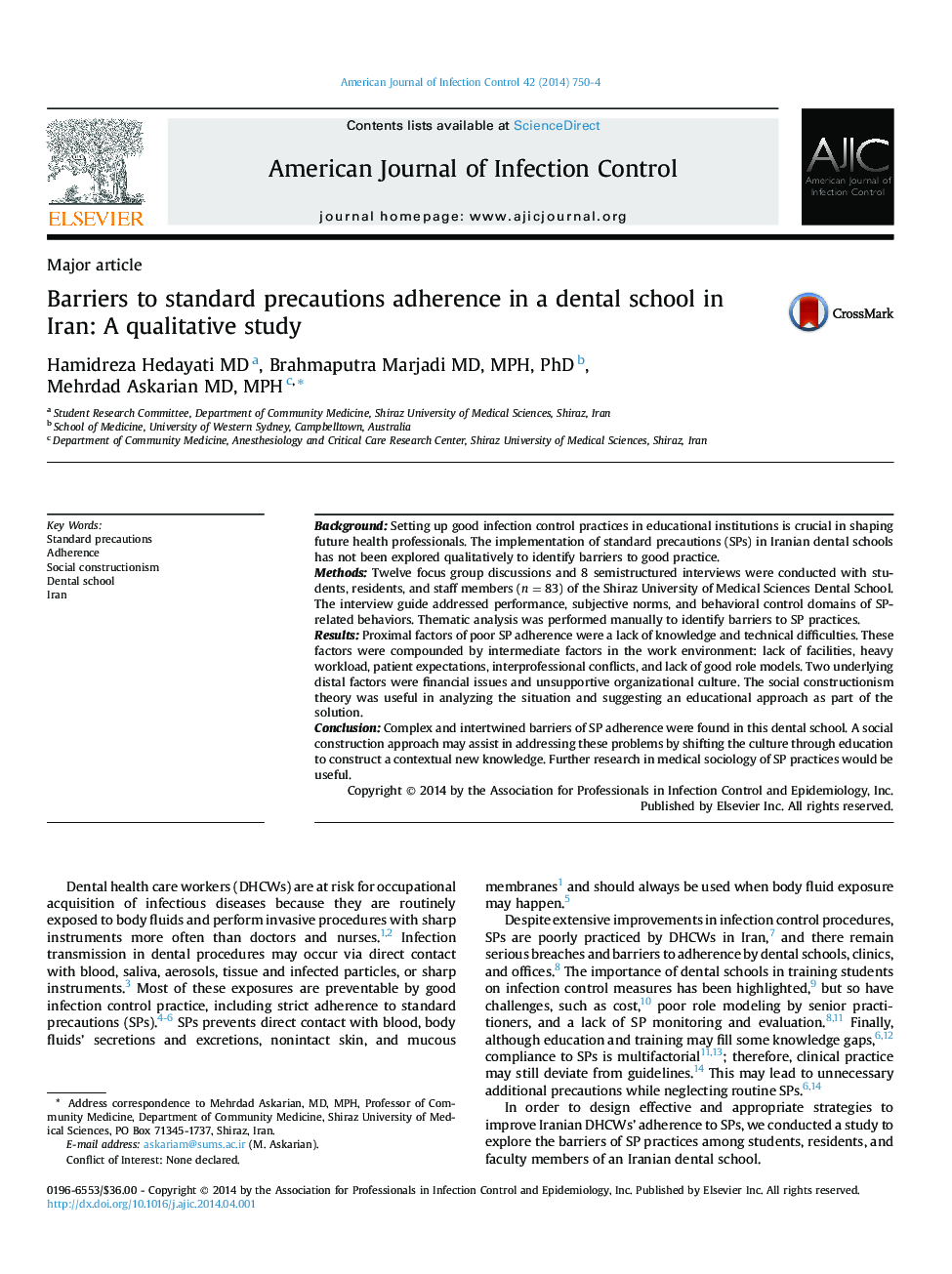| Article ID | Journal | Published Year | Pages | File Type |
|---|---|---|---|---|
| 2636967 | American Journal of Infection Control | 2014 | 5 Pages |
BackgroundSetting up good infection control practices in educational institutions is crucial in shaping future health professionals. The implementation of standard precautions (SPs) in Iranian dental schools has not been explored qualitatively to identify barriers to good practice.MethodsTwelve focus group discussions and 8 semistructured interviews were conducted with students, residents, and staff members (n = 83) of the Shiraz University of Medical Sciences Dental School. The interview guide addressed performance, subjective norms, and behavioral control domains of SP-related behaviors. Thematic analysis was performed manually to identify barriers to SP practices.ResultsProximal factors of poor SP adherence were a lack of knowledge and technical difficulties. These factors were compounded by intermediate factors in the work environment: lack of facilities, heavy workload, patient expectations, interprofessional conflicts, and lack of good role models. Two underlying distal factors were financial issues and unsupportive organizational culture. The social constructionism theory was useful in analyzing the situation and suggesting an educational approach as part of the solution.ConclusionComplex and intertwined barriers of SP adherence were found in this dental school. A social construction approach may assist in addressing these problems by shifting the culture through education to construct a contextual new knowledge. Further research in medical sociology of SP practices would be useful.
